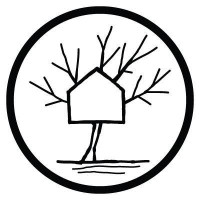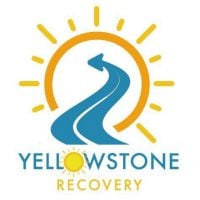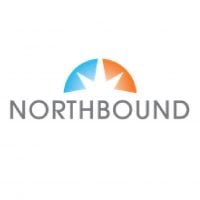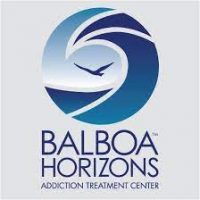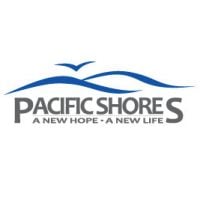Upfront Recoveries Drug Rehab of Costa Mesa
Drug Rehab Center in Costa Mesa, California
Upfront Recoveries Drug Rehab of Costa Mesa offers comprehensive addiction treatment and recovery programs including evidence-based therapies, group and individual counseling, aftercare support, and private health insurance acceptance.
Multiple patients have reported Upfront Recoveries Drug Rehab of Costa Mesa as permanently closed.
Research other rehabs in Costa Mesa, California, or get help finding an open facility.
About This California Facility
Upfront Recoveries Drug Rehab of Costa Mesa is a drug treatment facility located in Costa Mesa, California. They specialize in providing comprehensive treatment for individuals struggling with alcoholism, opioid addiction, substance abuse, dual diagnosis, and drug addiction. The facility offers a range of levels of care, including detox, inpatient, intensive outpatient, residential, and aftercare support. They also accept private health insurance, making their services accessible to a wider range of individuals seeking help for their addiction. Upfront Recoveries Drug Rehab of Costa Mesa is affiliated with Upfront Recovery, ensuring that patients receive quality care and support throughout their recovery journey.
Upfront Recoveries Drug Rehab of Costa Mesa offers a variety of services and treatment methods for individuals dealing with addiction and substance abuse. Their treatment approach includes both traditional and holistic methods, focusing on addressing the underlying issues contributing to addiction. The facility provides detoxification services to help individuals safely and comfortably withdraw from drugs or alcohol. They also offer inpatient and residential programs, providing a structured and supportive environment for individuals to recover. Additionally, they offer intensive outpatient programs, allowing individuals to receive treatment while maintaining their daily responsibilities. Upfront Recoveries Drug Rehab of Costa Mesa also provides dual diagnosis treatment, addressing mental health issues alongside addiction. Their aftercare support ensures that individuals have access to ongoing support and resources to maintain sobriety.
Genders
Ages
Modality
Additional
Conditions and Issues Treated
A drug abuser needs help because if no one helps them, they will not leave their vicious circle.
People who abuse drugs are likely to suffer from an addiction, which can cause serious health problems. It can also cause quarrels with people around them. It is common for drug abusers to have difficulty holding down jobs or relationships, but sometimes people around them can be quite tolerant. There are cases where the families of the drug abusers do not want to see them get any help, and the subject becomes controversial.
When it comes to helping drug abusers get sober, there are many options to choose from. It is essential to state that there is no “correct” way of doing things. People are different, and they need different types of help to get over their addiction.
Opioid addiction treatment should be done in a medically supervised drug rehab. Opioid addiction treatment will include detoxification and drug rehab counseling to help both the user and their loved ones learn how to live a successful sober lifestyle. Methadone, buprenorphine, and naltrexone are three medications that can help treat opioid addiction. Individual drug rehab counseling sessions can be helpful to discuss any questions or concerns with the drug treatment program.
When addiction and psychiatric issues co-occur, the addict’s recovery is more successful when both conditions are treated. A dual diagnosis refers to a condition in which the patient is diagnosed with two health issues: addiction and bipolar disorder.
Usually, dual diagnosis sufferers are prescribed a combination of treatments for each condition. The most common therapies are psychotherapy, behavioral therapy, spiritual counseling, 12-step programs, and medication management.
Psychiatric conditions are an obstacle to recovery because they can create roadblocks to a healthy lifestyle. Drugs and alcohol may be used as a means of self-medication, which can have dangerous consequences. Over time, addicts build up a tolerance and suffer withdrawal symptoms when drug use is stopped.
With the proper treatment, dual diagnosis sufferers can overcome their conditions and achieve lasting sobriety.
Levels of Care Offered at Upfront Recoveries Drug Rehab of Costa Mesa
This center offers a variety of custom treatment tailored to individual recovery. Currently available are Aftercare Support, Detox, Drug Rehab, Dual-Diagnosis, Inpatient, Intensive Outpatient, Intervention, Residential, with additional therapies available as listed below.
Detoxification is the first step in drug addiction treatment. A controlled environment where symptoms can be managed with medication and close observation is provided by drug detoxification. Detoxification is an essential step in the recovery process, but it is also one of the most dangerous. Due to the potential danger, it’s critical to understand what detoxification is and how to complete it safely.
A detox program helps the person physically withdraw from drugs and helps them track their progress. So, suppose the person isn’t ready for sobriety (or relapses). In that case, the treatment professionals can catch it early and help re-orient them towards recovery.
Inpatient treatment is an option that provides addicts with a supportive environment in which they can stop using. This type of intensive care and supervision is appropriate for those who were unable to quit on their own or need more structure than they could get from outpatient treatment, such as the addict most in need of this level of care.
The goal of inpatient rehab is for the addict to stay focused on sobriety and remain free of mood altering substances. Inpatient treatment programs usually offer the following: detox, therapy groups, one-on-one counseling, medication management and aftercare planning.
The Intensive Outpatient Program at Upfront Recoveries Drug Rehab of Costa Mesa is for those who need intensive care but would rather get it in the comfort of their own home. The treatment programs vary in duration and intensity and can be tailored to suit the individual’s needs. IOP helps the patient to live at home and gradually get back to their routine life.
Daily trips to the hospital that provides the treatment include intensive outpatient services (IOP). The patients gradually get back to their everyday lives. IOP benefits the most when the patients have a supportive family member or friend who can encourage them in their recovery.
Residential treatment programs are those that offer housing and meals in addition to substance abuse treatment. Rehab facilities that offer residential treatment allow patients to focus solely on recovery, in an environment totally separate from their lives. Some rehab centers specialize in short-term residential treatment (a few days to a week or two), while others solely provide treatment on a long-term basis (several weeks to months). Some offer both, and tailor treatment to the patient’s individual requirements.
Intervention services are designed to help family members and friends confront an addict about their drug use. While some addicts will immediately seek treatment after this confrontation, others don’t want to quit or need professional help with the process.
During an intervention, family members and friends work with a professional interventionist who will lead them through the discussion. This professional will help the addict understand that they need to get treatment and provide them with resources for recovery.
Aftercare is a part of drug rehabilitation. It is also known as “post-treatment support.” Aftercare programs are available for addicts after they complete drug rehab. It is often the final step in the recovery process. The goal of aftercare is to ensure that addicts maintain their achievements in rehab and do not relapse. Professionals generally provide aftercare (including addiction therapists, physicians, social workers, psychologists) and involve individual and group therapy sessions.
Therapies & Programs
Individual therapy is a critical component of addiction recovery. It allows the patients to go deep into their core issues and discover how to handle those problems better. Therapy can be conducted in individual sessions as well as group settings. In individual therapy for addiction, the patient meets with their therapist one-on-one to focus on the underlying issues. This allows patients to open up and discuss personal topics they may not feel comfortable discussing in a group setting. This type of therapy can help develop solutions specific to each patient, which helps speed up the recovery process.
Family therapy is a crucial part of drug treatment and getting sober. It is one of the most effective ways to help addicts stay on the path to long-term sobriety. When a drug addict decides that they want to try and get sober, it takes the support of every person they love to succeed. It can be incredibly difficult for loved ones to watch an addict go through the pain and suffering of withdrawal, but by being there with them and supporting them, they can help to make sure that the addiction never returns.
One of the most important parts of family therapy is the relapse prevention plan. During treatment, therapists and doctors will often sit down with the addict and their family to develop a plan in case the addict ever feels like they want to use again. This plan should involve steps the addict and family can take together to prevent them from relapsing in the future. An addict’s family can play a vital part in helping them to avoid relapse because they can spot the warning signs and help them get back on track before it becomes too much of a problem.
Trauma therapy helps people dealing with addiction by allowing them to confront the traumas of their past and move past them. It is important to note that trauma therapy should not be confused with PTSD (post-traumatic stress disorder) Rather, it is used to treat the effects of trauma, which are often at the root of addiction.
Dialectical Behavior Therapy was developed in the 1980s to treat chronically suicidal individuals. It is a cognitive-behavioral therapy that combines strategies derived from Zen Buddhism, such as mindfulness training. DBT has been adapted for use with other types of psychiatric problems, including substance abuse and personality disorders. DBT aims to help patients change their thinking and behavior, instead of relying on medication.
Eye movement desensitization and reprocessing is a form of psychotherapy that allows individuals to heal from the emotional distress that is the result of disturbing life experiences. It uses alternating bilateral stimulation the therapeutic process where the patient moves his/her eyes back and forth while recalling distressing thoughts or feelings can be facilitated by this eye-movement technique.
- It is effective to treat a range of different problems such as: anxiety, depression and grief.
- short term therapy (8-16 sessions) and normally 10 sessions is maximum treatment time required for treating emotional problems.
- has been found to be as helpful as cognitive behavioural therapy or exposure therapy.
The best drug treatment centers offer various services to help addicts learn how to live without drugs. Since addiction is a chronic physical and mental illness, addicts need to learn as many life skills as possible to help them stay clean and sober.
Many drug treatment centers like Upfront Recoveries Drug Rehab of Costa Mesa offer life skills activities as part of their addiction recovery programs. Examples include cooking classes, employment training, resume writing seminars, parenting classes, and computer training. When addicts have various life skills to lean on, they’re better equipped to put their addiction behind them for good.
The primary goal of life skills activities at drug treatment centers like Upfront Recoveries Drug Rehab of Costa Mesa is to help addicts recover from addiction and learn how to live a useful, productive life. Life skills activities help addicts find employment, take care of their families, and give back to the community. After learning about these various life skills, addicts are better prepared to return to society and lead happy healthy lives.
Entering a 12-step program allows people to accept that they struggle with an addiction on their own terms. It breaks down the process into 12 steps and gives recovering patients the ability to self help themselves without feeling rushed.
In Alcoholics Anonymous, members follow “The Big Book,” which contains guidelines for sobriety and offers support from fellow participants who have been through similar struggles. Many drug users also turn to Narcotics Anonymous or Pills Anonymous when they are looking at seeking treatment.
Both Narcotics Anonymous and Alcoholics Anonymous have 12 steps in common. They address issues that include ‘admitting there is a problem,’ taking control of the addiction, learning to listen to others without judgment, making amends, and more.
Patient Experience
Creative Arts
Creative arts therapy is an expressive process that helps people heal. Even if the goal isn’t always to create a finished product, it’s therapeutic for many. They can express themselves through journaling or other creative outlets like sketching, painting, sculpting, etc. This helps them cope with stress and anxiety better than before (and even when they were). The activity improves communication skills and the ability to process traumatic events from one’s past, often triggered during periods of withdrawal/relapse.
Experiential Therapy at Upfront Recoveries Drug Rehab of Costa Mesa
Experiential Therapy is a new approach to addiction treatment. Addiction-related psychological issues like depression and anxiety are addressed through physical activities.
Experiential Therapy can help those who have struggled with past traumas or life decisions like drug use. It allows people to gain new perspectives on their behavior patterns by recreating experiences in healthy ways rather than continuing old habits that may no longer serve them well.
Payment Options Accepted
For specific insurance or payment methods please contact us.
Is your insurance accepted?
Ask an expert, call (888) 674-0062
Upfront Recovery Associated Centers
Discover treatment facilities under the same provider.
- Upfront Recovery Luxury Drug Rehabs of Los Angeles in Torrance, CA
- RecoveryNow Drug Rehabs Los Angeles in Los Angeles, CA
Learn More About Upfront Recovery Centers
Additional Details
Specifics, location, and helpful extra information.
Costa Mesa, California 92627 Phone Number(949) 478-4305 Meta DetailsUpdated November 25, 2023
Staff Verified
Patient Reviews
There are no reviews yet. Be the first one to write one.
Costa Mesa, California Addiction Information
More than 3 million of California's citizens are addicted to illegal drugs. Almost 800,000 people use hard drugs, almost 5 million use marijuana, and another 2.1 million abuse alcohol every year. Other substance abuse issues such as binge drinking and teen drug use are also common. Many illegal drugs such as cocaine, heroin, methamphetamine, and marijuana are smuggled into the state from Mexico.
Methamphetamine and prescription drugs are a huge problem in Costa Mesa, California. In 2015, 11 drug overdose deaths were reported in Costa Mesa. The percentage of high school students in Costa Mesa who reported using marijuana was higher than the county average. Many rehab facilities in the city will begin by assessing your addiction and then creating a treatment plan tailored to your needs.
Treatment in Nearby Cities
- Chula Vista, CA (84.6 mi.)
- Victorville, CA (71.3 mi.)
- Calabasas, CA (54.7 mi.)
- Lemon Grove, CA (80.7 mi.)
- Redlands, CA (50.9 mi.)
Centers near Upfront Recoveries Drug Rehab of Costa Mesa
The facility name, logo and brand are the property and registered trademarks of Upfront Recoveries Drug Rehab of Costa Mesa, and are being used for identification and informational purposes only. Use of these names, logos and brands shall not imply endorsement. RehabNow.org is not affiliated with or sponsored by Upfront Recoveries Drug Rehab of Costa Mesa.

